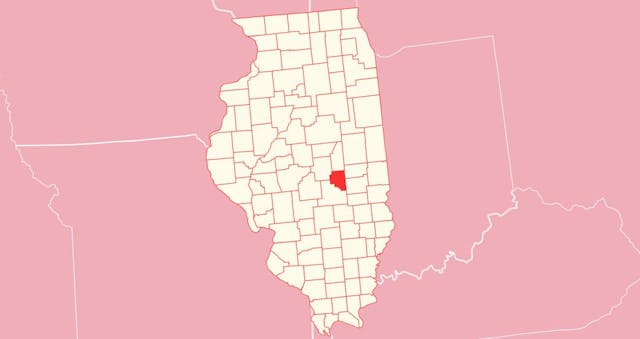Rehabs in Moultrie
Moultrie County was founded in Illinois, US, in 1843. Sullivan is its seat. According to the United States Census Bureau, the population was 14,510 in 2020. The total area is 335.96 square miles.
As statistics from the Illinois Department of Public Health show, this province registered 0 deaths from drugs in 2021. However, it had few overdose cases.
Despite the low usage of substances, surprisingly, there are no rehabs in Moultrie County. So, residents have to find treatment in other regions close to their living areas.
Rehab Programs in Moultrie County
Despite the absence of Moultrie County rehabs, residents can choose any center in other provinces to get treatment.
In the beginning, doctors of those clinics suggest that clients pass a drug and alcohol evaluation. They assess the addiction severity of people to create a better plan for detox. Besides, the assessment data helps experts determine the care strategy and medicine needs. Therefore, specialists can control withdrawal symptoms.
After detox, patients generally enroll in the main treatment program.
Inpatient Program (IP)
Inpatient care is the only program where people live in facilities 24/7. Therefore, it has the densest schedule. At first, the medical team develops a healing plan tailored to the needs of a person. Then, they set a clear goal that the patient must achieve during the recovery journey.
The goal of IP is to help participants to keep sobriety. They learn to prevent relapses and cravings. For this purpose, people attend in-person and group therapies, 12-step meetings, counseling, and other meetings.
It is easy for the participants to fight addiction by living away from a vulnerable environment. Having overcome the main problems, they can enroll in less strict care programs.
Partial Hospitalization Program (PHP)
Compared with IP, the partial hospitalization program allows people to spend nights and weekends at home. In other words, patients should have a sober place to live. It engages families and provides services for them. So, family members can look after their loved ones.
PHP offers behavioral and in-person therapies. Besides, it includes self-help and 12-step groups, trauma counseling, and other cure methods.
Intensive Outpatient (IOP)
Intensive outpatient programs may serve as an aftercare method as well as the primary cure. Yet, individuals should have stable mental health. Support is the basic means of healing. Thus, IOP offers various group meetings and peer support sessions. In-face appointments with therapists help to determine the basic needs of a person.
The length of treatment depends on the skills of the patients. Though, they should take the healing course nine hours per week.
Outpatient Program (OP)
The main recovery journey generally ends with an outpatient program. Although, those who feel that they are about to abuse substances may also attend this care. The main types of methods are individual and group counseling. During OP, people learn how to prevent the risks of dependence on chemicals.
Specialty Rehabs
Some facilities have specialty programs for those who need special care. People who belong to these groups are
Women (pregnant, those with infants and children)
Veterans and military who are at risk for substance use disorder (SUD)
Persons who struggle with co-occurring mental health and SUD
Children and teenagers
In these cases, residents must seek help for their loved ones in nearby provinces.
Prices for Luxury Rehabs
If someone prefers an elite recovery center, they may choose any existing luxury rehab in IL. Those are popular with their high comfort and a wide range of cure methods.
Yet, the fees for luxury services are high compared to the standard centers. Even so, some of them may be affordable due to the acceptable private insurance plans.
The minimal fee starts from $350 per week for a 30-day cure. Some centers have fixed up to $6,300 a week for a 50-day treatment.
Payment Options Without Insurance
By getting treatment in other counties, clients can find various medical centers. Those accept different payment options. For instance:
Medicare
Medicaid
State funds
Besides, they may suggest signing a financial agreement allowing patients to pay fees during a year.
Forcing Teens Into Rehabilitation
When teens are addicted to drugs or alcohol, parents must find relevant services. Even more, they have to spend a long time visiting other areas.
Nevertheless, parents can choose any clinic located near Moultrie County and even across Illinois. Actually, all of them have special programs in which minors are easily engaged. Hence, parents do not have to force them. Experts will assess the state of teens and include them in appropriate services.

